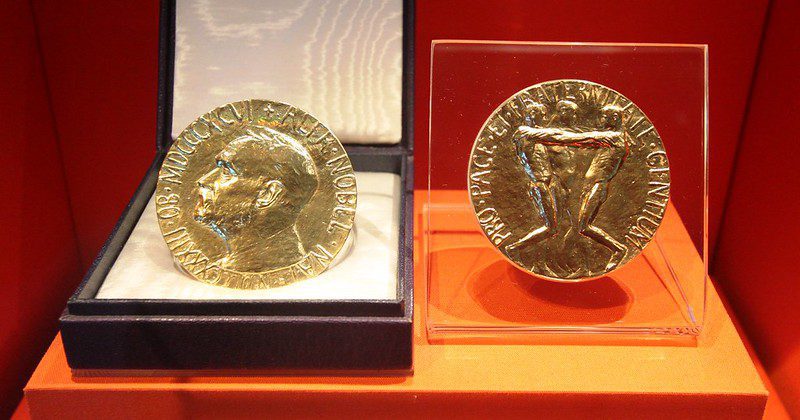
The Nobel Prize, one of the most prestigious honors in the world, recognizes outstanding contributions to the welfare of humanity. It was established by the will of Alfred Nobel, a Swedish inventor, scientist, businessman, and author. Born in 1833 in Stockholm, Nobel held over 350 different patents for inventions including dynamite and a detonator for explosives. Deeply concerned about the destructive potential of his inventions, he established in 1888 five annual prizes for outstanding contributions in physics, chemistry, physiology or medicine, literature, and the promotion of peace. The first Nobel Prizes were awarded in 1901, five years after Nobel’s death, to those who had conferred “the greatest benefit to humankind.” The prizes are administered by the Nobel Foundation and awarded annually on the anniversary of Nobel’s death. The Nobel Prize in each category consists of a gold medal, a diploma, and a monetary award valued at about one million dollars.
Among the many notable recipients, the prize in Physics has been awarded to Wilhelm and Marie Roentgen, Albert Einstein, Gugliemo Marconi, Max Planck, Werner Heisenberg, and Enrico Fermi; in Chemistry, Svante Arrhenius, Ernest Rutherford, Marie Curie, Arne Tiselius, Linus Pauling, and Dorothy Hodgkin. A prize in Economics, first instituted in 1969, was awarded to Friedrich Hayek, Milton Friedman, and Paul Krugman. At various times some nominees were not allowed by their governments to accept it; Jean Paul Sartre decided not to accept it Neither did Boris Pasternak, fearing Soviet retribution.
The prize in Medicine was awarded to Emil von Behring (diphtheria), Ronald Ross (malaria), Ivan Pavlov (psychology and neurology), Robert Koch (bacteria and tuberculosis), Camillo Golgi and Ramón y Cajal (neuropathology), Élie Metchnikoff immunology), Paul Ehrlich (cure for syphilis), Theodor Kocher (thyroid), Alexis Carrel (vascular suturing), Robert Bárány (vestibular function), Frederick Banting (diabetes), Willem Einthoven (EKGs), Frederick Gowland Hopkins (vitamins), Karl Landsteiner (blood groups), George Whipple and George Minot (pernicious anemia), Albert Szent-Györgyi (vitamin C), Gerhard Domagk (sulfonamides), Carl and Gerty Cori and Hans Krebs (Krebs cycle), Selman Waksman (streptomycin), Andre Cournand and Werner Forssmann (cardiac catheterization), Macfarlane Burnet and Peter Medawar (immunology), Francis Crick and James Watson (DNA, but regrettably not with Rosalind Franklin), Godfrey Hounsfield (CT scan), and many others.
The Nobel Prize in Literature recognized Ernest Hemingway, Gabriel García Márquez, and Toni Morrison, and has been criticized for overlooking myriads of other famous writers. The Nobel Peace Prize was given to Martin Luther King Jr., St. Teresa of Calcutta, and Nelson Mandela. It was not given to Mahatma Gandhi and was criticized by its award to Henry Kissinger and Yasser Arafat, and more recently also criticized for being given to Jimmy Carter, Al Gore, and Barack Obama on the basis of liberal bias. Some have suggested the prize to Obama was premature—he had been nominated less than two weeks after being in office. The Peace Prize for 2023 was awarded to Narges Mohammadi for her fight against the oppression of women in Iran and to promote freedom and human rights.
The process for selecting Nobel laureates varies by prize. It usually involves nominations by experts in the relevant fields and review by prize committees appointed by Swedish and Norwegian institutions. The deliberations and selections take place during the year, and the winners of the award are at announced ceremonies beginning in October of that year. Most laureates learn about the award through a quick phone call just minutes before the world is informed. This system appears to be subject to error, such as in 1987, when a call meant for a chemist was erroneously directed to a Los Angeles rug shampooer with a similar name who could barely understand the heavily accented caller. “Now, I do a good job on carpets,” he remarked, “but this seemed a little excessive.”1
Note
- David Oshinsky, “The Nobel Prizes Need a Makeover,” Wall Street Journal, Sept-Oct 2023.

Leave a Reply